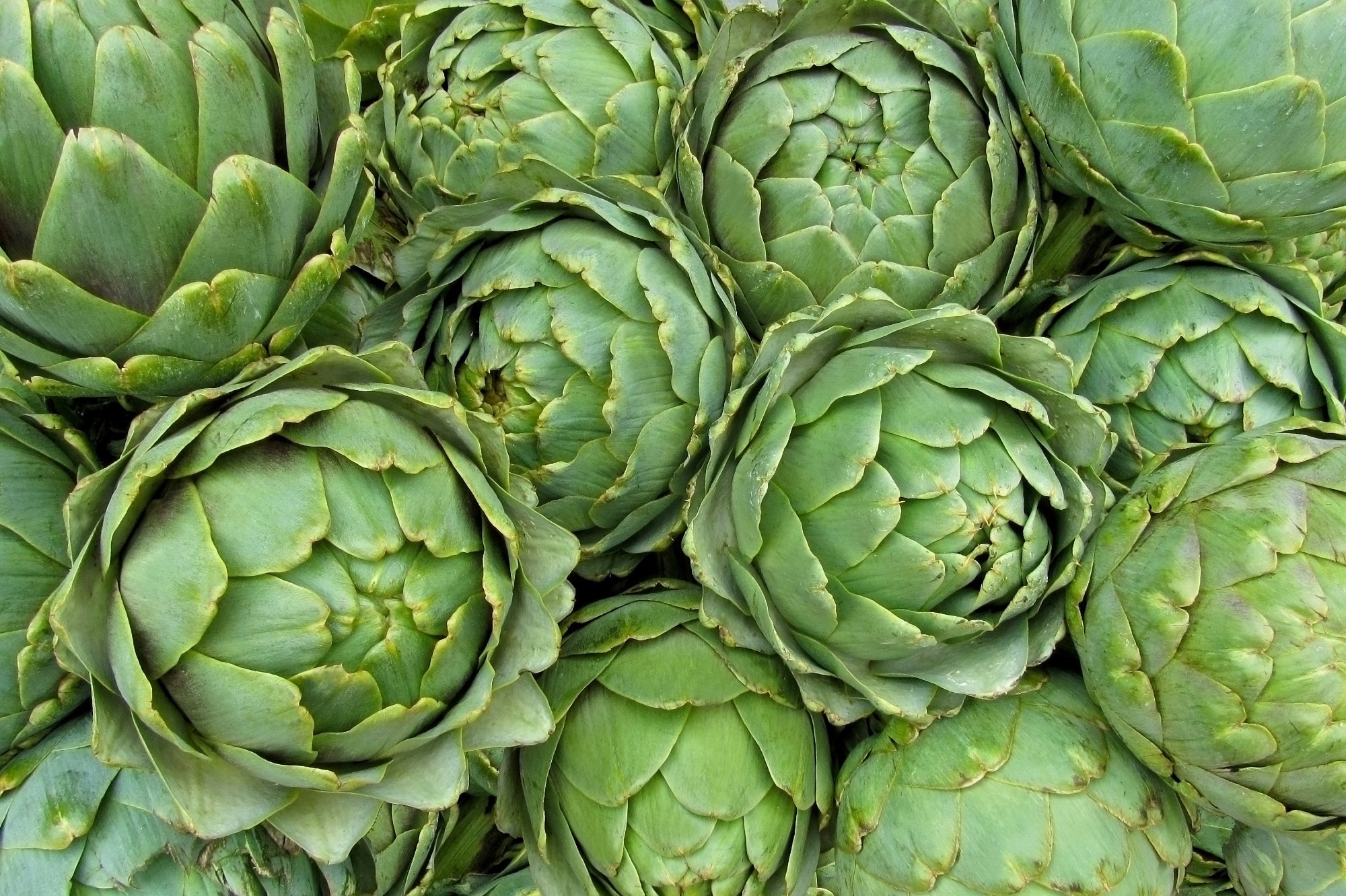In a recent review published in Nutrients, Prof. Beata Olas collates available scientific literature on the clinical and nutraceutical health benefits of Cynarra scolymus, the globe artichoke.
The review summarizes research on different edible parts of the plant, the antioxidant properties that the artichoke possesses, and dietary supplements and by-products derived from the herb.
It further touches upon any potential toxicity of the plant or its metabolites in clinical dosage scenarios.
Study: An Overview of the Versatility of the Parts of the Globe Artichoke (Cynara scolymus L.), Its By-Products and Dietary Supplements. Image Credit: Ev Thomas/Shutterstock.com
The miracle of the humble globe artichoke
Cynara scolymus, the globe artichoke, is a species of herb commonly grown for its dietary value in the Mediterranean, Egypt, the Canary Islands, and parts of Asia and South America.
The plant’s capitula, leaves, and flowers are edible and form the bulk of its historic ecosystem service. However, some cultures have used infusions of the leaves for their curative properties, which extensive recent research has attributed to the herb’s substantial antioxidant potential.
The globe artichoke is rich in phenolic compounds, with 100 g of the herb containing, on average, 96 mg of gallic acid equivalent. Caffeic acid derivates form the bulk of these metabolites, with flavonoids such as apigenin and luteolin also found.
Scientists have explored these compounds for their anti-cancer, antimicrobial, and hepatoprotective potential, with a growing body of evidence elucidating their chemical composition and clinical value.
Unfortunately, a project summarising and discussing progress in the field remains lacking. Such a manuscript would help inform and direct future research and educate the public about the hidden benefits of this humble herb.
Study data collection
Data for the present study was collected from five online scientific repositories, namely PubMed/Medline, Web of Knowledge, Google Scholar, ScienceDirect, and Scopus, supplemented with additional research obtained during the publication reference reviews.
Databases were accessed from repository initiation till 14 Feb 2024. All publications pertaining to C. scolymus or its variants, varieties, or close genetic relatives were included in the review, including studies on their by-products and derivatives.
Phytochemical characteristics and nutritional benefits of the globe artichoke
Biochemical and nutritional research has revealed that the globe artichoke contains about 57 kcal of energy for every 100 g of its dry weight, making it a low-calorie plant-based food and justifying its inclusion in ‘healthy diets’ such as the Mediterranean diet.
100 g of the plant further contains 3 g of protein, 11 g of carbohydrates, and 0.2 g of fatty acids. Notably, 5.4 g out of every 100 g of C. scolymus is dietary fiber, and up to 36% of its dry matter is inulin, both of which are known to have digestive and prebiotic effects.
Inulin, particularly, has been shown to promote the growth of Bifidobacterium gut microbial strains, improving gut microbiota composition and overall health.
The bulk of artichoke’s clinical potential, however, is attributed to its high concentration of phenolic compounds such as chlorogenic acid, caffeic acid, ferulic acid, apigenin, luteolin, and cynarin, together accounting for 96 mg in every 100 g of the herb.
“Interestingly, artichoke by-products, including raw artichoke, thermally treated artichoke, i.e., blanched artichoke, and the waters from artichoke blanching, are also good sources of antioxidants, especially phenolic compounds.”
Different parts of the plant, both edible and inedible, have been found to contain varying concentrations of biologically active compounds ranging from minerals such as Si, Fe, Na, K, Ca, Cu, and Mg, which, along with folate, inulin, ascorbic acid, and other phenolic compounds are found in abundance in the leaves. At the same time, the seeds present a rich source of proteins, lipids, fiber, and sterols.
Clinical and nutraceutical activity of artichokes
The best-known and most studied property of artichokes and their metabolites is their antioxidant potential.
These extracts have been shown to effectively reduce CU2+-mediated oxidative stress in vitro and retard the oxidation of low-density lipoprotein (LDL). Numerous studies have elucidated the benefits of artichokes’ antioxidant potential in vivo, especially in the liver and kidney.
Unfortunately, while these findings suggest great promise for the clinical applications of this herb and its by-products, particularly in treating chronic conditions like cancers, human clinical trials in the field are sorely lacking.
Despite owing their mechanistic efficacy to their antioxidant properties, the hepatoprotective effects of the herb, fortunately, are much better characterized than the antioxidant ones.
Artichokes and their extracts have been shown to support antioxidant systems, retard lipid peroxidation, and display protective effects against acute hepatoxicity in murine models (rats).
Murine models have further revealed that artichoke extracts can protect or even reverse toxicity induced via Cadmium (Cd) exposure.
Research on male albino rats has shown that artichokes can prevent histopathological abnormalities, with the highest activity observed from metabolites obtained from the stem and receptacle of the plant.
Parallel research has reported cardioprotective and even neuroprotective properties for artichoke and its extracts with artichoke juices, which have been shown to substantially reduce blood pressure and attenuate symptoms for patients suffering from mild hypertension.
Its by-products have been found to control obesity, reduce inflammation, improve lipid profiles, and benefit cardiovascular health.
Safety first
The limited research available on the cytotoxicity of artichokes and their metabolites is promising – no studies thus far have reported adverse side effects at clinically relevant dosages, with the European Medicines Agency citing rabbit and murine models as the basis for their recommendation of 600–1320 mg of dried artichoke consumed daily.
“In many countries, artichoke extracts, both dried and in solution, and the dried edible parts, including artichoke hearts, are currently commercialized as dietary supplements; these are typically sold as coated tablets or capsules intended for the treatment of liver diseases. It appears that the primary bioactive compounds involved in the pro-health potential of artichoke, its by-products and dietary supplements are phenolic compounds; even so, more studies are needed to clarify their precise mechanism of action.”
Credit: Source link




